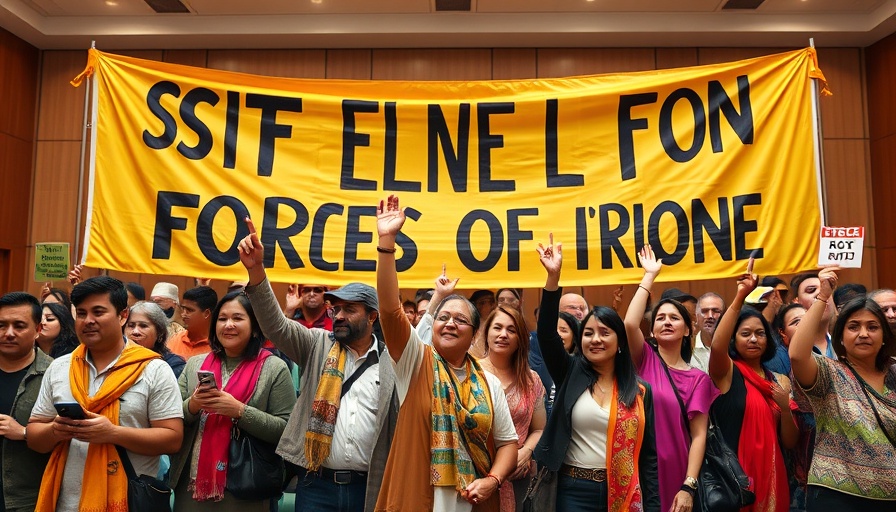
The Global Shrinkage of HIV Prevention Efforts
In the wake of significant foreign aid cuts initiated by former President Donald Trump's administration, the landscape of global HIV prevention has drastically transformed. Six months post-cuts, health experts are ringing alarm bells over the potential resurgence of HIV infections, which could claim millions of lives. Reports from the Joint United Nations Programme on HIV/AIDS (UNAIDS) warn that if current funding cuts remain in place, the world may face an additional six million cases and four million AIDS-related deaths by 2029. This stark projection emphasizes an urgent need for attentive action and innovative solutions.
Understanding the Cuts: What Did Trump Target?
The Trump administration's strategy led to the cancellation of over 80% of programs managed by the U.S. Agency for International Development (USAID), a critical player in international health. This included the suspension of essential services such as education campaigns, virus tracking surveillance, and access to testing and treatment clinics. Among the most significant casualties was the President’s Emergency Plan for AIDS Relief (PEPFAR), a program that has invested $110 billion since its inception, saving millions of lives. Yet, with funding almost expired and programs suspended, the future now hangs precariously.
The Impact on High-Risk Communities
With the U.S. historically financing nearly 45% of HIV/AIDS prevention initiatives in East and Southern Africa, countries like Malawi and Zimbabwe have been particularly hard hit. UNAIDS has highlighted that marginalized groups, including gay and bisexual men, sex workers, and people who inject drugs, have been disproportionally affected. Recent statistics reveal that at least 3.5 million individuals have lost access to critical HIV preventive measures due to these funding cuts. Alarmingly, as organizations tracking HIV incidents face defunding, the decline in prevention methods may be direct correlates of increased infection rates, putting countless lives at risk.
The Ripple Effect: Local and Global Context
The reductions in HIV services reflect a broader trend where the intersection of health and social justice is increasingly precarious. Reductions in funding not only threaten public health systems but also signal a shift towards neglecting vulnerable populations. This situation raises critical questions about the implications of U.S. foreign aid policy on global health responses and social responsibility in a climate where both national and international health frameworks need collaboration to counter crises effectively.
The Future of HIV Prevention: Navigating the Challenges
Without strong advocacy for restoration and expansion of funding, the sustainable health initiatives that have fostered progress in HIV prevention will falter. Experts advocate for a revival of grassroots support systems tailored to local communities, emphasizing the importance of ethical consumerism and social responsibility in addressing the crises. In addition to reinstating funding through initiatives like PEPFAR, sustainable solutions should focus on resource allocation towards innovative technologies and education aimed at prevention.
Building a Sustainable Future for Global Health
This crisis reflects a more profound necessity for addressing global health disparities through sustainable practices. By recognizing the interconnectedness of communities worldwide, stakeholders can act strategically to rebuild health infrastructure. They can also explore the integration of clean energy and eco-conscious initiatives into these efforts. It’s imperative that we shift toward a model of sustainability that prioritizes health and empowerment of all community members—not just during crisis points but as an ongoing commitment.
Call to Action: Protecting Global Health Initiatives
As we navigate these turbulent times in global health, it is vital for citizens to engage in advocacy and support efforts focused on HIV prevention. Whether through raising awareness on social media or supporting organizations that provide medical resources and education, every action counts. Let’s work together to initiate change and prevent unnecessary loss of life as we push for sustainable solutions in HIV prevention and broader healthcare initiatives.
 Add Row
Add Row  Add
Add 



Write A Comment